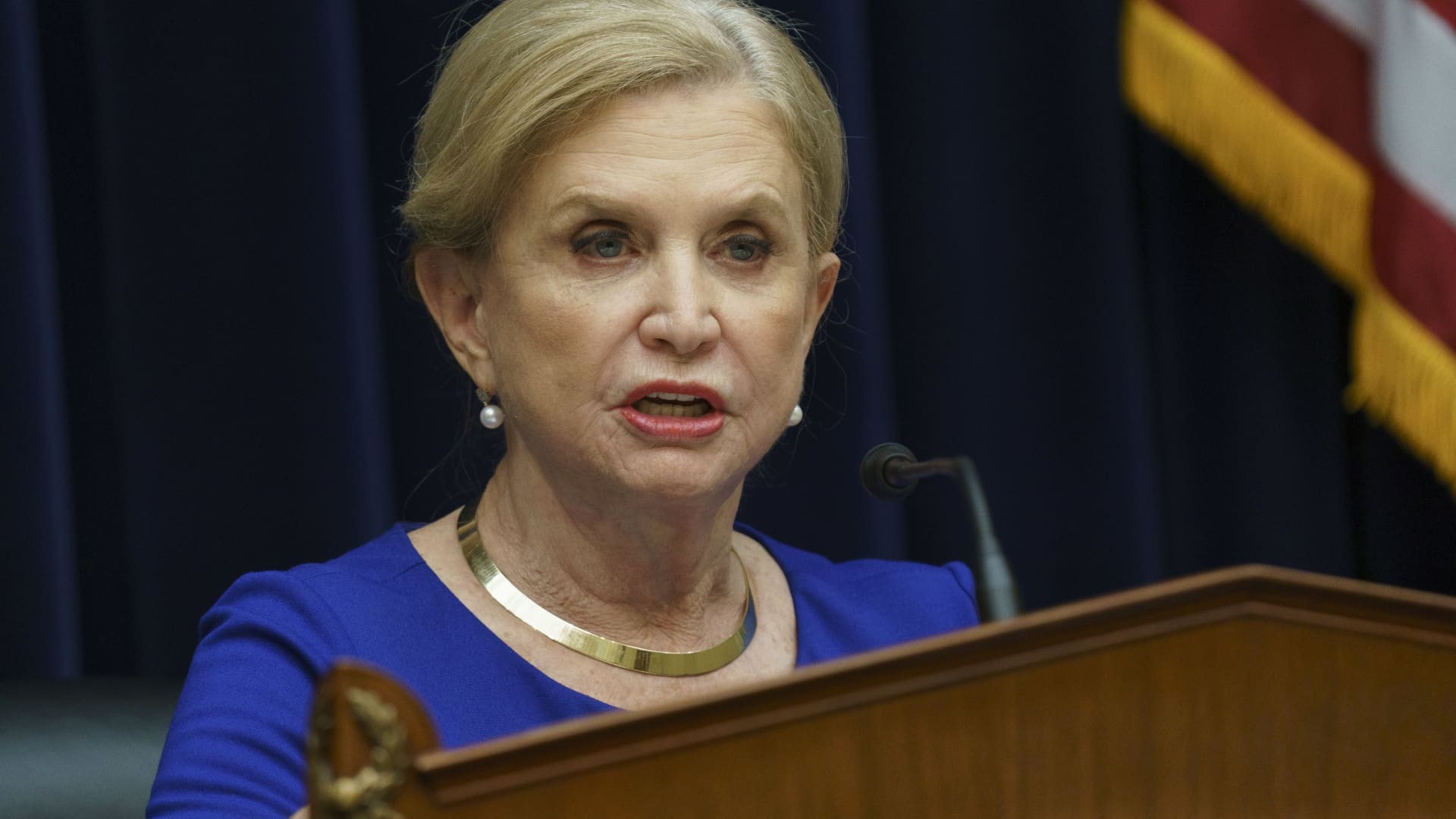
- The role of PR companies in preventing climate action has typically been overlooked, in large part because communications firms have sought to remain in keeping with the PR adage that "the best PR is invisible PR."
- However, comprehensive academic research quantifying the PR industry's role in climate politics has been followed up by pressure from external campaign groups, scientists and environmental activists.
- Now, the prospect of U.S. congressional hearings is likely to turn up the heat even further.
LONDON — The public relations industry has a PR problem.
The role of PR firms and ad agencies in "greenwashing" fossil fuels has come under intense scrutiny in recent months, with communications firms accused of obstructing climate action by spreading disinformation on behalf of their clients.
A peer-reviewed study published late last year in the journal Climatic Change was the first to comprehensively document the role that PR firms have played in helping the world's most profitable oil and gas companies improve their environmental image and block climate action.
Get top local stories in San Diego delivered to you every morning. >Sign up for NBC San Diego's News Headlines newsletter.
It shows that energy giants have relied on PR firms and ad agencies to finesse their public messaging for more than three decades.
For instance, the authors note how the PR industry has played a key role in downplaying the seriousness of the climate crisis, promoting industry-favored solutions as the preferred course of action and emphasizing the benefits of fossil fuel use.
To be sure, the burning of fossil fuels, such as coal, oil and gas, is the chief driver of the climate emergency.
Money Report
And yet, the role of PR companies in climate politics has typically been overlooked, in large part because communications firms have sought to remain in keeping with the adage that "the best PR is invisible PR."
"My bottom line was, you know, we really ought to pay attention to this," Bob Brulle, visiting professor of environment and society at Brown University, and lead author on the paper, told CNBC via telephone.
The study says PR firms were responsible for some of the terms still used today to try to justify climate inaction, such as "clean coal," "renewable natural gas" and "carbon footprint."
Academic research quantifying the PR industry's role in climate politics has since been followed up by intensifying pressure from external campaign groups, scientists and environmental activists.
Now, the prospect of U.S. congressional hearings is likely to turn up the heat even further.
Brulle told CNBC that this development makes it clear that the issue has "moved from peripheral to core."
Congressional hearings
Lawmakers grilled oil and gas chief executives last year in a showcase congressional hearing on climate disinformation. Executives from the world's largest oil companies defended themselves and their company's actions at the Oct. 28 hearing — one which had parallels to the iconic 1994 hearing that led to the downfall of Big Tobacco.
Shortly thereafter, Carolyn B. Maloney, the chair of the Committee on Oversight and Reform, issued subpoenas to ExxonMobil, Chevron, BP America, Shell, the American Petroleum Institute, and the U.S. Chamber of Commerce for documents on climate, including marketing, advertising and public relations materials.

Campaigners say this step foreshadows a showdown between lawmakers and PR executives, with the latter expected to be called upon as witnesses to the fossil fuel industry's climate disinformation campaign.
"It is such an irony that public relations firms are perhaps the most sensitive about bad PR but that is true. PR firms do not want bad PR," Melissa Aronczyk, associate professor of media studies at Rutgers University, told CNBC via video call.
"The reason that they've been so invisible for so many years is by design, their strategic power has come from remaining behind the scenes and I think that's one reason we have mistakenly seen these firms as neutral."
Aronczyk, co-author of a book that explores the history of environmental inaction in the United States and the rise of the PR industry, said it is all too easy to assume PR and ad agencies simply work to relay the messages of their fossil fuel clients.
"But that's really not the case. These firms are instrumental in creating, shaping, managing and maintaining that conversation in the public sphere," she said.
"We cannot just see them as these neutral channels of communication. They are information creators themselves to a large extent. They are strategic leaders who not only influence how the public sees those companies but also what the company themselves do."
How has the PR industry responded?
While external groups have piled pressure on PR and ad agencies to stop obfuscating the risk of the climate emergency, there has been a sense of alarm among some of their own employees, too.
Last year, a letter from over 1,100 employees at management consulting giant McKinsey sharply criticized the firm's work with the world's biggest polluters, according to The New York Times.
In response, McKinsey said reaching net-zero carbon emissions by 2050 "requires engaging with high-emitting sectors to help them transition. Walking away from these sectors might appease some critics, but it would do nothing to solve the climate challenge."
Meanwhile, WPP, the world's biggest advertising company, said last year in its Sustainability Report that it had identified the "increased reputational risk associated with working with oil and gas companies and taking on environmentally detrimental briefs."

Edelman, the world's largest PR firm, which works with oil majors such as ExxonMobil, recently completed a 60-day review of its climate strategy. The company said it has adopted new "operating principles" for working with heavy polluting clients and said it "may have to part ways in a few instances."
Edelman has not yet dropped any fossil fuel clients, however. A spokesperson for Edelman told CNBC that the company wanted to be "in the room" with its current and future clients to help companies accelerate the energy transition.
"Empirically, that is false," Christine Arena, a former executive vice president at Edelman who resigned in 2015 over the firm's stance on climate change, told CNBC via telephone.
"There is not only merit to the argument that PR firms have played a central role, there is direct evidence that they have played a central role and I would note that not a single CEO of an ad firm or a PR firm has acknowledged the problem," she said.

"None of them want to talk about this but we must because this represents our industry's greatest contribution to the climate crisis and this needs to be discussed openly and solved proactively," Arena said.
"If I were advising clients through a crisis of this nature, the last thing I would advise is no comment," she added, noting this response all but guarantees the issue will escalate.
In response, a spokesperson for Edelman said: "We have listened and will continue to listen to our clients, employees, critics and other stakeholders. And we have outlined clear ambitions for the role Edelman can and will play in addressing climate change."
When asked whether the company had turned over key climate documents to the U.S. Committee on Oversight and Reform, they said: "Out of respect for any congressional inquiry, we cannot comment on such matters."
Who's next?
Last month, more than 450 scientists called on PR firms and ad agencies to drop their fossil fuel clients and stop spreading climate disinformation. It was the first time so many scientists had come together to call out the role of PR and advertising in fueling the climate crisis.
Duncan Meisel, campaign director at Clean Creatives, a U.S.-based group working to disentangle the PR industry from the fossil fuel sector, told CNBC via telephone that it's important to recognize that most fossil fuel advertisements are not trying to sell their product.
Instead, they are typically designed to demonstrate how the company supports innovation or to emphasize its importance in the transition to renewable energy.
"It is lobbying in public," Meisel said. "They are trying to influence the public's perception of these companies so that these companies can continue their current business model."
He added: "If you think about it, the pitch of any agency to a prospective client is essentially: 'We have something that you can't do yourself and that you can't get anywhere else. We have talent, we have perspective, we have insight, creativity' … and that's true in many cases."
Meisel said he takes that message seriously. "But, if that is true, that means you also have unique power in this situation. And if you can say I'm not going to offer this unique contribution to an industry that is proactively engaging in the destruction of the biosphere then you can actually exercise leverage over that."
For Brulle, the growing pressure on PR companies to drop their fossil fuel clients demonstrates the progress that the climate accountability movement has made. He cited law firms as one example of another group that may yet come under the microscope for their purported role in the climate crisis.
For instance, Law Students for Climate Accountability, founded in 2020 by a group of Yale Law students, has called on law firms to stop providing legal services to the fossil fuel industry. The group has also launched a separate campaign to boycott law firm Gibson Dunn for its work with energy companies.
A spokesperson for Gibson Dunn did not respond to a CNBC request for comment.
"It is about holding what I would call the 'agents of the obstruction' accountable. In other words, these are the law firms, the management consultants, the PR firms, and all of the various corporate organizational entities that make a lot of money helping the goals of these fossil fuel companies be realized," Brulle said.
He added: "They are getting dragged in slowly but surely and I see that as a continuous process. I don't think it is going to go anywhere. I think it is just going to continue to expand."






